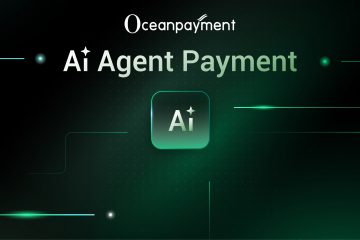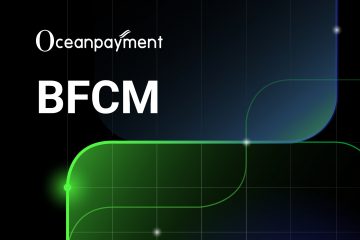From the point of view of most customers, the payment process is usually pretty simple. All they have to do is use their preferred payment methods, and the payment process is over. However, in the background, there are a ton of different elements that are working to make the payment happen. These pieces are all central to the transaction taking place.
One of those elements is a payment gateway.
What is a Payment Gateway?
A payment gateway is a technology utilized by merchants to accept credit and debit card payments from customers using credit cards through physical devices or online payment portals. Payment gateways transmit the payment data to the payment processor. They can be viewed as agents that support the payment process by connecting the merchant account to card companies.
The gateways are mostly used by eCommerce websites for transactions where cards are not present. These payments can be essentially be compared to POS payments for online transactions. The integrated terminal authenticates the physical card and ensures that the data is correct on all ends. However, the authentication process is sensitive due to the nature of the data processed during the process.
These gateways cannot always be compared with virtual payment terminals that can be converted into point-of-sales.
Benefits of Payment Gateways
Payment gateways primarily simplify payment processing by handling a number of small tasks that are conventionally challenging to handle through the conventional programming infrastructure.
Here are some of these tasks.
- Encryption – Encryption codes the transmitted data to ensure that it cannot be interpreted even in the scenario where the data being transmitted is accessed by 3d parties. The core information encrypted through the process is credit card payment information and customer information.
- Matching Standards – There are usually a number of online standards required to effectively process payments and carry out eCommerce payments. eCommerce gateways help your business comply with these standards and maintain safe payments between customers and merchants.
What is a Payment Processor?
Payment processors are primarily services that handle your transactions and allow customers to purchase your products. Payment processors transmit the payment information from customers to the issuing and inquiring banks. Similarly, in the landscape where there is an error in the payment date or process, payment processors are required to handle the payment and deal with the process. A small fee is usually incurred during the process back to the customer.
Furthermore, to ensure the security of the payment process, it is essential for the payment processor to follow the security measures outlined. By following through on the procedures, these companies significantly reduce the risk posed to the customer.
For offline payments, payment processors provide Point-of-Sale (POS) terminals to businesses to simplify the payment process. This facilitates the payment processing process through card machines and other required hardware equipment.
What are Payment Providers?
Payment providers are also referred to as payment aggregators because of their role in helping businesses accept online payments. Instead of requiring you to maintain a dedicated payment account with a specific bank, payment providers simplify the process by allowing businesses to have a financial umbrella. These companies take on the combined risk of businesses by collectively managing their accounts and handling every stage of the transaction, from the initiation of the process to the broader completion of the payments. These providers can allow connectivity with multiple cards and payment networks aside from a wide range of partner banks. The result is often in the form of a seamless payment process for customers and businesses, as the process is usually streamlined to be extremely simple. Payment providers take care of the majority of the responsibility of the transaction, including PCI compliance and other required elements of the transaction. Additionally, payment providers often provide the most cost-effective option for customers due to the pricing strategy adopted with the products. These providers often provide the best starting options for businesses to get started and expand their product offerings.
Difference Between Payment Providers and Payment Gateways
Even though the terms are commonly used in exchange for each other, there is a clear difference between payment provides and payment gateways. In their nature, both of these are two entirely different types of organizations providing different types of services to customers. While both provide a similar range of services, there is a clear difference between the fundamental focus of both providers.
Payment providers can be considered to be all-encompassing service providers that provide a comprehensive range of services required for businesses to start accepting payments. These services include the vested risk of the payment handling. The approval process with payment providers is often instantaneous because of the nature of the vetting process. On the other hand, payment gateways online act as an intermediary between the merchants and customers for the transaction process. This is different from the widespread support provider by payment providers.
Aside from the aforementioned factors, here are some other differences you can expect between payment processors and payment gateways.
- Payment providers have significantly higher payment ratios than payment gateways due to the online and offline nature of the touchpoints within the system.
- Payment providers often provide a wide range of payment options in contrast to payment gateways that only extend support to a limited number of payment options.
- The primary nature of payment aggregators can be considered interface-oriented, whereas payment gateways serve as intermediary entities.
If you’re interested in knowing more about Payment gateways, check out Online Credit Card Payment Gateway Providers.
Streamlined Payment Processing with Oceanpayment
Oceanpayment helps you avoid unnecessary fees by offering you transparent payment processing solutions. As the leading fintech company in the region, we offer cutting-edge products to help you minimize unnecessary fees and seamlessly receive payments.
To learn more about Oceanpayment and our payment processing solutions, check out more at https://www.oceanpayment.com/.












Comments are closed.